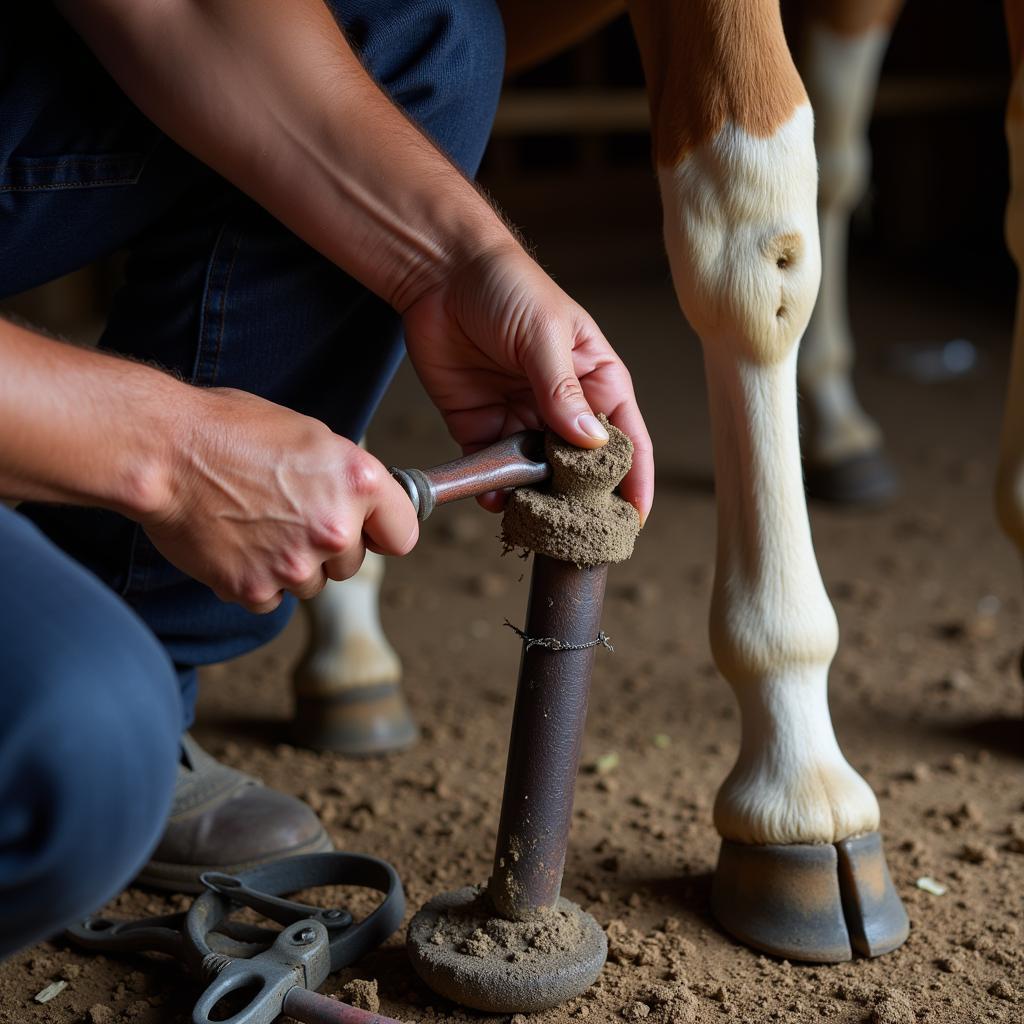The Pottok Horse, a small but hardy breed native to the Basque Country of the Pyrenees Mountains, possesses a unique charm and a rich history. These resilient equines have adapted to the challenging mountainous terrain, developing a strong constitution and a surefooted nature. This comprehensive guide will delve into the fascinating world of the Pottok horse, exploring their characteristics, history, care, and more.
Uncovering the History of the Pottok Horses
Pottok horses are believed to be one of the oldest horse breeds in Europe, with some theories suggesting their lineage traces back to prehistoric times. Their name, “Pottok,” originates from the Basque language, meaning “small horse.” For centuries, these horses roamed freely in the Pyrenees, developing a strong sense of independence and adaptability. They were traditionally used by local farmers for light agricultural work and transportation due to their hardy nature and ability to navigate challenging terrain. Over time, the Pottok horse has faced challenges, including population decline and crossbreeding. However, dedicated breeders and conservation efforts are working to preserve the breed’s unique characteristics and ensure its future.
Physical Characteristics of the Pottok Horse
Pottoks are known for their small stature, typically standing between 1.15m and 1.47m (11.1 to 14.2 hands) high. They possess a compact and sturdy build, with a short, thick neck, a broad chest, and strong legs. Their coat is typically thick and dense, providing insulation against the harsh mountain climate. Common coat colors include bay, black, and brown, though other variations exist. The Pottok’s hardiness is evident in their ability to thrive in challenging environments, withstanding both extreme cold and heat.
What Does a Pottok Horse Look Like?
Pottok horses are typically small and stocky, with a thick coat, a short neck, and strong legs. They commonly have bay, black, or brown coats.
Caring for a Pottok Horse
While generally low-maintenance, Pottok horses require specific care to ensure their well-being. Their diet should consist primarily of forage, such as grass or hay, supplemented with minerals and vitamins as needed. Regular hoof care is essential, as their hooves adapt to the rocky terrain. Providing ample space for exercise and socialization is crucial for their physical and mental health.
 Pottok Horse Hoof Care
Pottok Horse Hoof Care
The Pottok Horse’s Temperament and Uses
Pottoks are known for their gentle and docile temperament, making them suitable for various disciplines. They are often used for recreational riding, driving, and even light agricultural work. Their calm nature and surefootedness make them ideal companions for both experienced and novice riders. Their intelligence and willingness to learn contribute to their versatility.
Is a Pottok Horse Right for Me?
If you are looking for a hardy, versatile, and gentle horse, a Pottok might be the perfect breed for you. Their adaptability makes them suitable for various climates and disciplines.
Conclusion: The Enduring Legacy of the Pottok Horse
The Pottok horse, with its rich history and unique characteristics, remains a treasured breed. From its origins in the Pyrenees Mountains to its current status as a versatile and beloved equine companion, the Pottok horse continues to captivate horse enthusiasts worldwide. Their adaptability, hardiness, and gentle nature make them a truly remarkable breed.
FAQ
-
What is the average lifespan of a Pottok horse?
Pottok horses typically live between 20 and 30 years. -
Are Pottok horses good for beginners?
Yes, their gentle nature and surefootedness make them suitable for novice riders. -
What are the common health issues in Pottok horses?
Pottoks are generally hardy, but they can be prone to certain hoof problems due to their mountainous origins. -
Can Pottok horses be kept with other animals?
Generally, yes. They are known for their calm temperament and often coexist peacefully with other livestock. -
How much space do Pottok horses need?
Pottoks need ample space to roam and exercise, ideally with access to pasture or a large paddock. -
What is the price range for a Pottok horse?
The price of a Pottok horse can vary depending on age, training, and lineage. -
Are Pottok horses easy to train?
Pottoks are intelligent and willing to learn, making them relatively easy to train.
When you need support, please contact us: Phone: 0772127271, Email: [email protected] Or visit us at: QGM2+WX2, Vị Trung, Vị Thuỷ, Hậu Giang, Việt Nam. We have a 24/7 customer service team.